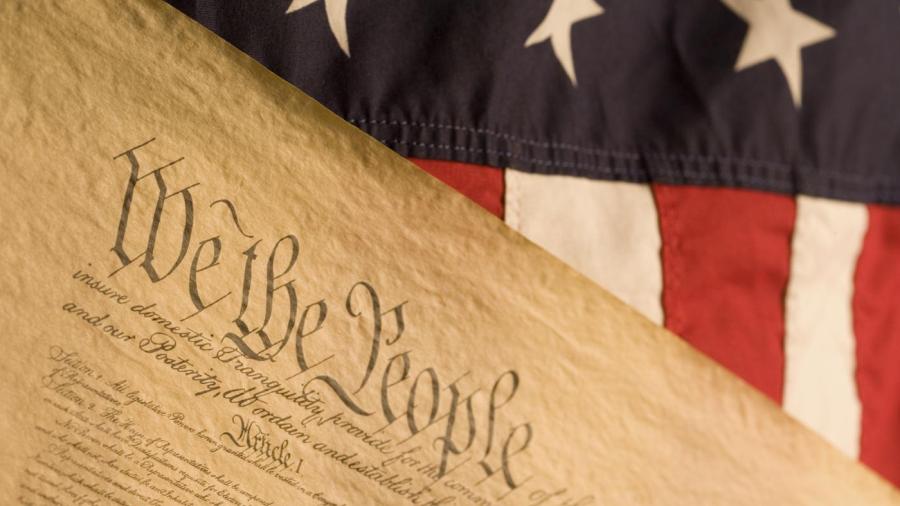What Is Popular Sovereignty in the Constitution?

Popular sovereignty, which is a type of governance based on the consent and approval of the people, appears in Article VII of the United States Constitution. Popular sovereignty is considered one of the most important, basic and essential rights of the American people. It is established as an irrevocable right, to be enjoyed by all citizens of the U.S., and was deemed so important by the drafters of the Constitution that it appears in the Preamble, introducing the document with the words “We the people of the United States…”
Popular sovereignty first appears in the Preamble of the Constitution, stating that the Constitution of the United States is established for and by American citizens. The concept of popular sovereignty later appears in Article VII, which required approval, by at least nine states, to approve the proposed framework and operations of the central federal government. The concept of popular sovereignty is that the federal and state governments in the United States derive their authority and purpose for establishing rules by citizens. Only with the approval of the American public can state and federal governments proceed with enacting laws: power that does not consider or honor the will of the people is considered unauthorized and unconstitutional.





